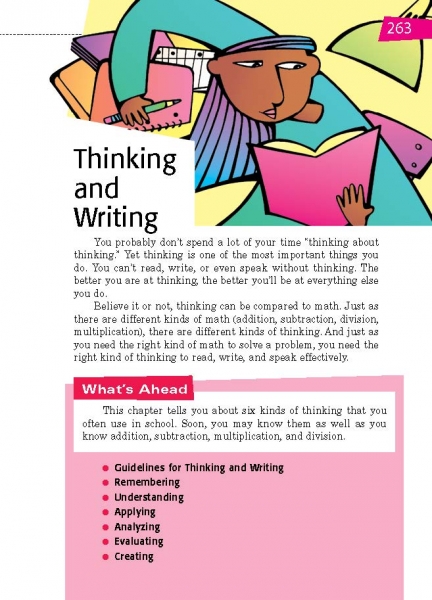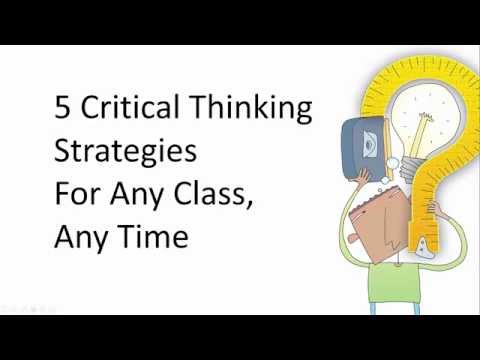Page 263 from

Start-Up Activity
On a whiteboard, randomly list the six types of thinking skills covered in this chapter. Explain that some types of thinking require deeper thought than others. Place students in small groups. Then challenge each group to list the thinking skills in order from easiest (surface-level thinking) to most difficult (deep-level thinking). Have groups share their lists with the class, and then reveal the correct order: remembering, understanding, applying, analyzing, evaluating, and creating.
Think About It
“Writing is thinking. To write well is to think clearly.”
—David McCullough

Start-Up Activity
On a whiteboard, randomly list the six types of thinking skills covered in this chapter. Explain that some types of thinking require deeper thought than others. Place students in small groups. Then challenge each group to list the thinking skills in order from easiest (surface-level thinking) to most difficult (deep-level thinking). Have groups share their lists with the class, and then reveal the correct order: remembering, understanding, applying, analyzing, evaluating, and creating.
Think About It
“Writing is thinking. To write well is to think clearly.”
—David McCullough







